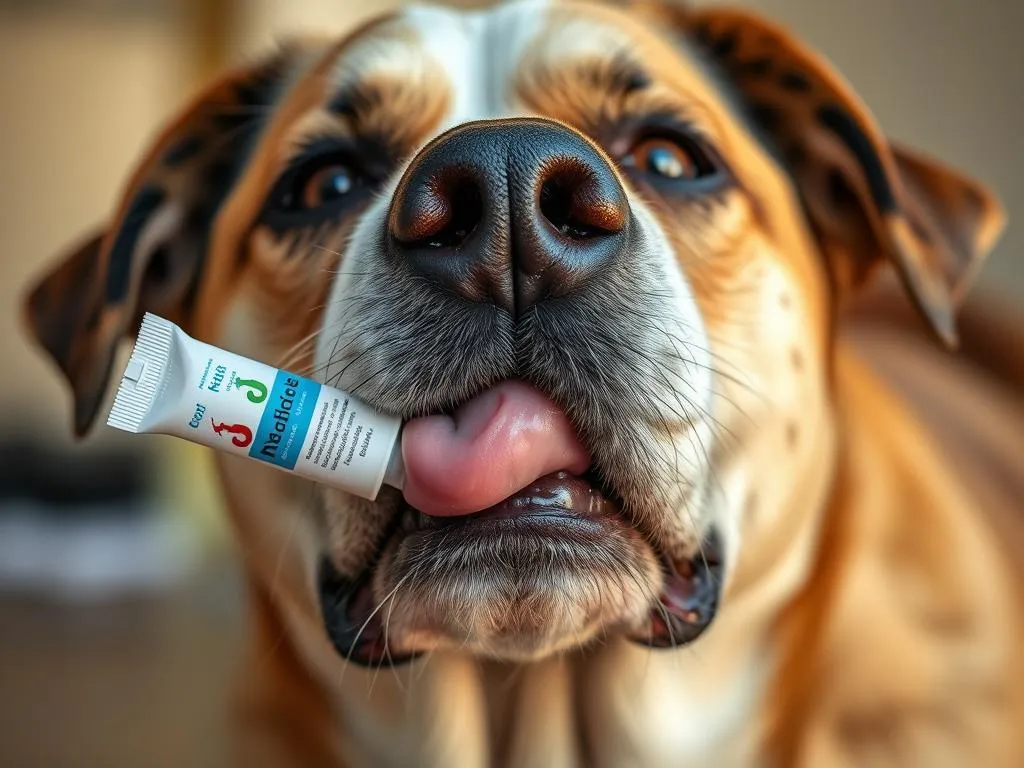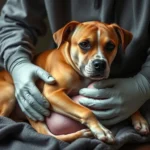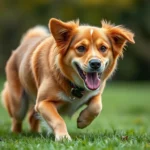
Introduction
As pet owners, we all want the best for our furry friends. However, just like humans, dogs can face a variety of health issues throughout their lives. From skin infections to minor wounds, the potential for health problems is ever-present. This is where dog health care becomes essential. Regular health checks, proper nutrition, and timely treatment can prevent many complications.
Topical treatments, such as ointments, are commonly used in veterinary medicine to treat external injuries and infections. They can be very effective in promoting healing and preventing further complications. However, a common concern arises when we hear the phrase, “my dog licked triple antibiotic ointment.” This scenario can cause anxiety for pet owners, but understanding the implications and appropriate responses can help alleviate worries.
Understanding Triple Antibiotic Ointment
What is Triple Antibiotic Ointment?
Triple antibiotic ointment is a topical medication that combines three antibiotics: Bacitracin, Neomycin, and Polymyxin B. These ingredients work together to combat a broad spectrum of bacteria, making it a popular choice for treating minor cuts, scrapes, and burns in dogs. It is designed to prevent infection and promote healing, but it’s important to use it carefully and under the guidance of a veterinarian.
When is it Used?
Veterinarians commonly prescribe triple antibiotic ointment for conditions such as:
- Minor skin infections
- Cuts and scrapes
- Post-surgical wound care
- Prevention of infection in minor wounds
The benefits of using this ointment include its ability to reduce the risk of infection and promote faster healing. Its application can be especially helpful for active dogs prone to minor injuries.
Risks of Ingestion
What Happens When Dogs Lick Triple Antibiotic Ointment?
While triple antibiotic ointment is effective, it’s also crucial to understand the risks associated with ingestion. If my dog licked triple antibiotic ointment, the primary concern is the potential for side effects or toxicity. The ingredients, while safe for external use, can cause adverse reactions if ingested.
Some potential side effects from ingestion include:
- Nausea
- Vomiting
- Diarrhea
- Gastrointestinal upset
Possible Reactions
Moreover, dogs might experience allergic reactions to one or more of the ingredients in the ointment. Signs to watch for include:
- Itching or rash
- Swelling of the face, ears, or paws
- Difficulty breathing
If you notice any of these symptoms after your dog licked triple antibiotic ointment, it’s essential to act quickly.
Immediate Steps to Take
Assessing the Situation
If you discover that your dog has licked triple antibiotic ointment, the first step is to assess the situation. Determine how much ointment was ingested. If it was a small amount, monitor your pet closely for any signs of distress.
Check for immediate adverse reactions such as:
- Excessive drooling
- Vomiting
- Diarrhea
Keeping a close eye on your dog in the hours following the incident is crucial.
When to Contact a Veterinarian
If you’re concerned about the amount ingested or if your dog exhibits any adverse symptoms, it’s best to err on the side of caution and contact your veterinarian. Provide the vet with the following information:
- The brand and specific type of ointment
- Estimated amount ingested
- Time of ingestion
- Any symptoms your dog is displaying
Your veterinarian will provide guidance on the next steps, which may include bringing your dog in for an examination.
Preventative Measures
Safe Application of Ointments
Preventing your dog from licking ointments is vital to their health. Here are some tips for applying ointments safely:
- Apply the ointment when your dog is calm and relaxed.
- Use a small amount and spread it thinly over the affected area.
- Distract your dog immediately after application with a toy or treat.
If necessary, consider using an Elizabethan collar or protective wear to prevent licking. This can be especially helpful if your dog is prone to licking wounds.
Training and Behavior Modification
Training your dog to avoid licking wounds or ointments is another proactive measure. Techniques you can use include:
- Positive reinforcement: Reward your dog for not licking the treated area.
- Distraction: Engage your dog in play or offer a chew toy when applying ointments.
- Consistent commands: Teach your dog commands like “leave it” to discourage licking.
Consistency and patience are key when modifying behavior.
Alternatives to Triple Antibiotic Ointment
Natural Remedies
If you’re looking for alternatives to triple antibiotic ointment, there are natural remedies that can be effective for treating minor wounds. Some popular options include:
- Honey: Known for its antibacterial properties, honey can be applied to minor cuts.
- Aloe Vera: This plant is great for soothing skin irritations and promoting healing.
- Coconut Oil: With its antifungal and antibacterial properties, coconut oil can help prevent infection.
However, it’s essential to weigh the pros and cons of using natural remedies versus traditional ointments, especially in more serious cases.
Veterinary-Approved Products
For those concerned about the risks of ingestion, consider using veterinary-approved topical antiseptics specifically formulated for dogs. These products are designed to be safe for ingestion, making them a more suitable option for pets who are prone to licking their wounds.
Consult your veterinarian for recommendations on suitable products for your dog’s specific needs.
General Dog Health Care Tips
Regular Vet Check-ups
Routine health examinations are a cornerstone of dog health care. Regular vet visits allow for early detection of health problems and ensure your dog is up-to-date on vaccinations. During a vet check-up, you can expect:
- A complete physical examination
- Discussion of your dog’s diet and exercise
- Recommendations for preventive care
Maintaining a Healthy Diet
A balanced diet is crucial for your dog’s overall health. It plays a significant role in preventing health issues and supporting a strong immune system. When selecting a diet for your dog, consider:
- Nutritional requirements based on age, breed, and activity level
- High-quality ingredients with minimal fillers
- Regularly scheduled feeding to maintain a healthy weight
Importance of Exercise
Regular physical activity is essential for your dog’s physical and mental well-being. It helps prevent obesity, reduces behavioral issues, and strengthens the bond between you and your pet. Suggested activities based on breed and age include:
- Short walks for older dogs
- Interactive play sessions for younger dogs
- Agility training for active breeds
Finding the right balance of exercise for your dog will contribute to their overall health and happiness.
Conclusion
Navigating the world of pet health care can be challenging, especially when it comes to medications and treatments. Being cautious with medications around pets is crucial, and understanding the implications of situations like my dog licked triple antibiotic ointment can help you respond effectively. Maintaining your dog’s health and safety is a multi-faceted approach that includes regular vet visits, a balanced diet, and proper training.
Always consult with a veterinarian for any health concerns, and remember that being informed is the first step toward ensuring your dog leads a happy, healthy life.









